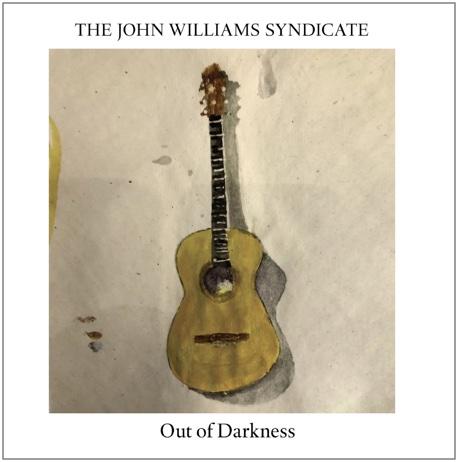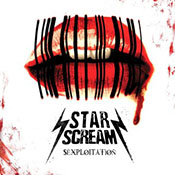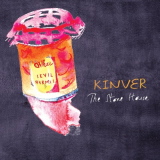
SEO – search engine optimization; it’s a hugely important factor in having an online presence. This particular John Williams has spent a long (and hugely productive) time under the radar in the music business. Now he’s released an album under his own name and he has to compete with a world-renowned classical guitarist and an equally-renowned film soundtrack composer. John Williams of the John Williams Syndicate has plugged records, produced records and BBC sessions, headed up an A&R department and made his own records. So it’s about time to make a few calls to former clients, and a few new discoveries, and work on that solo project in the shed at the bottom of the garden.
There are a lot of things to admire about “Out of Darkness”; as you would expect, the quality of the playing is masterful and the standard of the arrangements and production is superb. As well as pulling in vocal contributions from Petula Clark and Claudia Brücken and a co-write with the legendary Iain Matthews, John also enlists upcoming singers Slicko DiCaprio, Amber Prothero and Isabella Coulstock for lead and backing vocals on the album. Which brings me to the only minor criticism I have; with so many different singers and varied musical stylings, it’s difficult to find a sense of musical cohesion across the album as a whole, although there is a theme of renewal, springing out from the penultimate song, “Nothing” which, unusually, has some lyrical popular culture references set against a seventies singer-songwriter arrangement (maybe a hint of Al Stewart) with a vocal that hints at Stephen ‘Tintin’ Duffy’s Lilac Time period. Everything else on the album is a consequence of this rebirth.
Picking out a few standout moments, “Spanish Song”, co-written with Adrian York, Isabella Coulstock and Slicko DiCaprio, is the most contemporary pop song on “Out of the Darkness” with a Latin tinge and some interesting Spanish/English counterpoint vocals. The album’s final song, “Don’t Give Up on Me”, also has a Latin feel; the lyrics are minimal, but the playing is outstanding with lots of mini solos, including a sax/trumpet counterpoint solo; it’s memorable. “You Got Me from Hello” is cool jazz with Latin rhythms in a Carlos Santana/Rob Thomas style, while the piano-led “Luminescent”, with programmed percussion, nods in the direction of early Kate Bush.
This album is a serious musical project from a serious player; even the packaging is lush, with a thirty-two page booklet containing credits, lyrics and some Tim Hobart abstract paintings. The contributions from the established musicians are predictably excellent, but it’s even more gratifying to hear emerging talents like Isabella Coulstock, Amber Prothero and Slicko DiCaprio taking the opportunity to shine.
“Out of Darkness” is out on Friday June 6th on Wulfrun Records (WULFRUN 1).
And just to give you a flavour of the album, here’s the lockdown video for “You Got Me From Hello”:
 Ok, I admit it, we’re a bit late out of the blocks with this one and the reason we’re finally reviewing “Sexploitation” is that Anna-Christina from Lilygun pointed me in the direction of Star Scream; good spot A-C, as ever. Songwriter Adam Lightspeed fronts the band mixing guitar and keyboards with lead vocals and the trio is completed by Natalie Cherry (bass and backing vocals) and Sky London (drums and percussion). With that particular line-up, you probably won’t be too surprised if I tell you that Muse is acknowledged as a major influence. The album is dotted with references to a wide variety of styles and eras, stitched together with such skill, style and unpredictability that the end result is a unique collage.
Ok, I admit it, we’re a bit late out of the blocks with this one and the reason we’re finally reviewing “Sexploitation” is that Anna-Christina from Lilygun pointed me in the direction of Star Scream; good spot A-C, as ever. Songwriter Adam Lightspeed fronts the band mixing guitar and keyboards with lead vocals and the trio is completed by Natalie Cherry (bass and backing vocals) and Sky London (drums and percussion). With that particular line-up, you probably won’t be too surprised if I tell you that Muse is acknowledged as a major influence. The album is dotted with references to a wide variety of styles and eras, stitched together with such skill, style and unpredictability that the end result is a unique collage.
The album opens with the camp theatricality of “Roseblood (Weeping Willow)”, a seedy, sordid tale of exploitation in the skin trade and an arrangement which echoes the Sensational Alex Harvey Band from the early 70s. “Die on the Floor” is another reference to the 70s, fusing a Marc Bolan vocal style with a Sweet stomp and maybe even a bit of early Giorgio Moroder to set the scene for the rest of the album.
When the playing and the dynamics are this good, it’s easy to focus on the music at the expense of the lyrics; if you do, you’re only getting half the picture. Adam is obviously a writer who likes a bit of wordplay and it comes through in some of the titles: the riff-monster “Harlot’s Web”, “Frightmare” and the stomper, “Kill me Kate”. And it doesn’t stop at that; there are some clever turns of phrase in the lyrics as well; how about ‘knight in shining Armani’ from “Frightmare”, and my favourite portmanteau word for the week ‘conspiranoia’, from the hard-riffing glam satire of the current music scene, “Death Shower Scene”. I suspect they ordered in extra kitchen sinks for that one.
Towards the end of the album there are three songs linked by the theme of transgressive or dysfunctional relationships. The trio starts with “Kill me Kate”, progresses through “As the Earth Dies Screaming” with its very effective use of loud-soft dynamics to “Heart of Ice (Falling Out of Love)” which builds by adding instrumental layers for each verse. For once Adam’s voice isn’t on the ragged edge throughout and in the opening verses there’s a hint of Stephen Duffy’s voice (remember him?).
The album’s third and fourth songs also share a theme both poking fun at the faces, the alpha males and females at the forefront of any scene. “Break the Night” is probably the album’s most heavily Muse–influenced song, particularly the vocals and the guitar solo, while “Scenester” pulls influences from everywhere. The song opens like the Clash version of “Brand New Cadillac”, has a breakdown with manic left to right percussion panning, a second breakdown for live audience participation and a guitar solo which would fit perfectly on a Joe Meek record and a crash ending. What more could you want?
The more reflective moments are all towards the end of the album, starting with “When Crimson Lips Spell Murder” which makes good use of dynamics before ending with a delicate string quartet coda. The final big production number, “Obsession”, is built around a sequenced synth riff which loops almost throughout the song, while a piano hook on top adds to the over-the-top Muse feel of the song. The album closes with the stripped-back “The Girl Who Was Death” (just acoustic guitar, strings and some lovely harmonies) and a lead vocal which sounds a lot like Greg Dulli.
“Sexploitation” is an album that grips you because you just don’t know what’s coming next; imagine throwing a lit match into a box of fireworks and you’re about halfway there. The influences are all very transparent but they’re woven so subtly into the rich and contrasting fabric of the songs that they seem to belong there. But it isn’t just about big guitars and thunderous drums; the band use dynamics really effectively and the lyrics are actually worth listening to. In a world of manufactured pop pap and over-hyped ‘next big thing’ acts (did someone mention Royal Blood) this album is a reminder that the real talent is still out there.
Available now from Amazon, iTunes or the band’s website.
 Well, this is certainly very different from most of the albums I’ve reviewed recently, apart from the Tess of the Circle album, “Thorns”. Kinver are Ian Parker (guitars and vocals), Beth Porter (cello and backing vocals), Alex Thomas (drums and percussion), Steve Amadeo (bass) and Morg Morgan (piano and Hammond) and they play the gentle, melodic and sometimes haunting songs of Ian Parker. If you’re after banging rhythms and loads of digital effects, then you’re in the wrong place; the arrangements of the songs on their debut, “The Stone House” are tasteful and subtle, demonstrating great technique without any hint of overplaying.
Well, this is certainly very different from most of the albums I’ve reviewed recently, apart from the Tess of the Circle album, “Thorns”. Kinver are Ian Parker (guitars and vocals), Beth Porter (cello and backing vocals), Alex Thomas (drums and percussion), Steve Amadeo (bass) and Morg Morgan (piano and Hammond) and they play the gentle, melodic and sometimes haunting songs of Ian Parker. If you’re after banging rhythms and loads of digital effects, then you’re in the wrong place; the arrangements of the songs on their debut, “The Stone House” are tasteful and subtle, demonstrating great technique without any hint of overplaying.
The songs are introspective, confessional folk/rock of the type that was incredibly popular in the early 70s. The opening track,” The Lights” sets the tone for the album with a cello riff (there’s a phrase I never thought I’d use) played over some clipped guitar chords as an intro before the song unfolds into a story of loss and redemption, common themes throughout the album. The gentle “The Will to Dance” leads into what is musically the bounciest track on the album, the almost-jaunty “From the Start”. “Ten Thousand” is a twenty-first century protest song wrapped up in a very gentle, laid-back style while “Silent Void” has a folky start and is probably the most confessional song on the album, but more about that later. “Turning to Light” starts with a military drum pattern, but soon drops into the familiar low-tempo band groove while “Waste in Chains” features a nice finger-picked guitar accompanied by cello, before dropping into a country-feel middle section, then back to guitar and cello. The gloomy “Lonelier Souls” acts as a contrast with the uptempo and lyrically upbeat “Basket” and with “Halfway Home”, the album closes as it opened with guitar, cello and viola.
Musically the album is pretty easy on the ear; the performances are very good throughout and the band move through a variety of styles with ease and Ian Parker has a very good voice, reminiscent at times of another West Midlander, Stephen Duffy. Lyrically, it isn’t such an easy listen. Ian Parker, as a lyricist, pulls out some interesting metaphors including this in “From the Start”: ‘It occurred to me you see that I’d never really be quite round enough for many of life’s holes’, but it’s the content overall that I’m less sure about.
I’m quite partial to a bit of melancholy, even misery, in my music but on “The Stone House” it’s almost inescapable. There’s an air of fragility which runs through each track on the album, in the music as well as the lyrics and a sense of alienation in the lyric above, but also in several references to misfits and addiction. The songs could have been sequenced to create a narrative of redemption (or the opposite) but we’re left guessing how the story actually ends. It’s difficult to tell if a song is confessional and based on biographical events, or a complete work of fiction but if “The Stone House” is based on reality, then I really hope that making the album has helped Ian Parker through a difficult time. If it’s a creation and not a confession, then it’s a very convincing portrait of a desperately difficult existence.
CD release Monday October 21


